Organic modules is a felt-based outdoor green facade system that uses environmental data to determine its shape and characteristic
Long Description
Increased impervious surfaces in growing cities have affected our modern landscape contributing to rising temperatures (the heat island effect) and leading to an overall lack of natural and biotic matter within many urban environments. The use of green facade systems on building exteriors is a promising strategy that not only reduces cooling loads but also provides a dynamic vegetated space that interacts with its surroundings. Organic modules explores how environmental data and digital fabrication can be used to increase the performance of these systems by tailoring their design configuration and morphology to meet the specific needs of a project. The resulting product is a modular, landscaped wall made from strips of bio-degradable Eco-Felt. The patterning of the system creates a physical porosity and flexibility that current felt-based vertical gardens do not offer. Using a radiation analysis of the target façade surface the location of the pockets and opening can be situated to block sunlight in areas that are subject to intense radiation but to let light in those areas that receive less solar energy helping to reduce the cooling loads on a building, ultimately reducing the associated conditioning energy consumption. Organic modules also present agricultural opportunities such as urban farming by creating a growing area that requires less square footage than traditional gardens. Overall, this project intends to demonstrate a more holistic view of the benefits associated with greening a building envelope to reveal new ways in which we can interact with the buildings and spaces that we occupy.

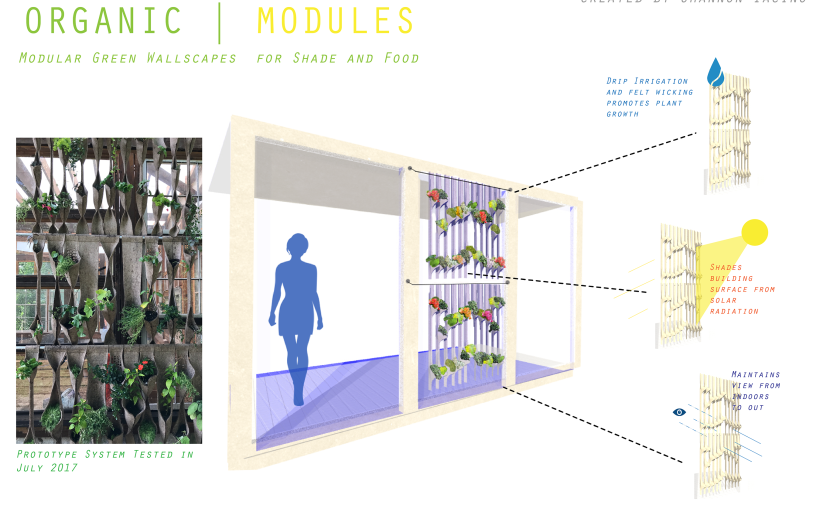
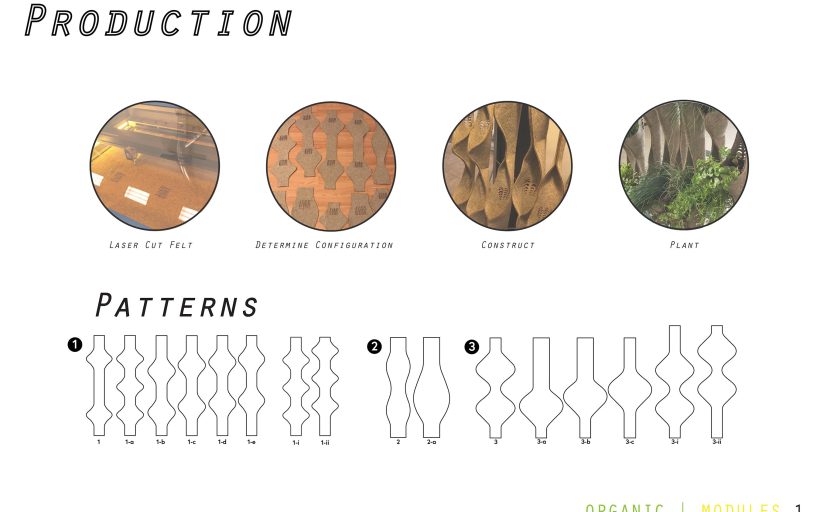


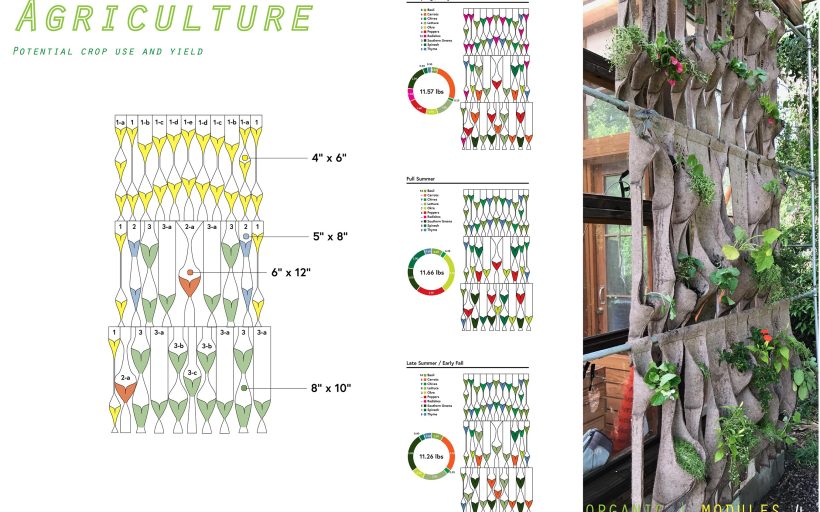
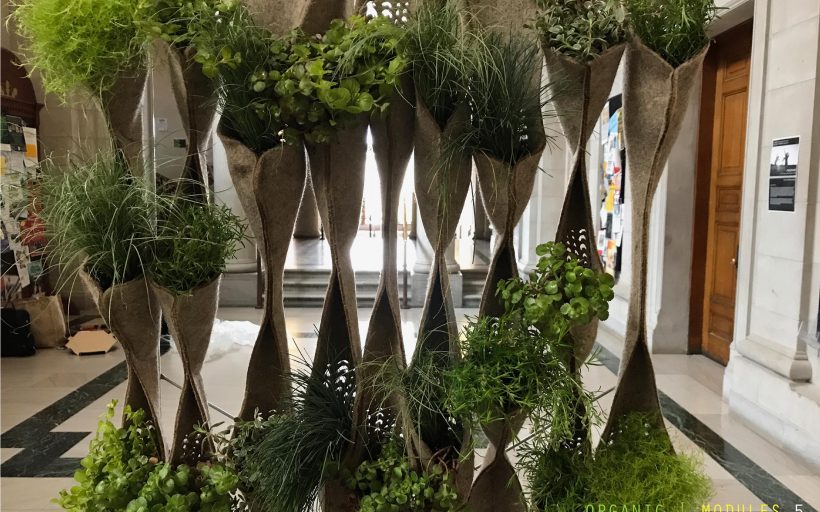


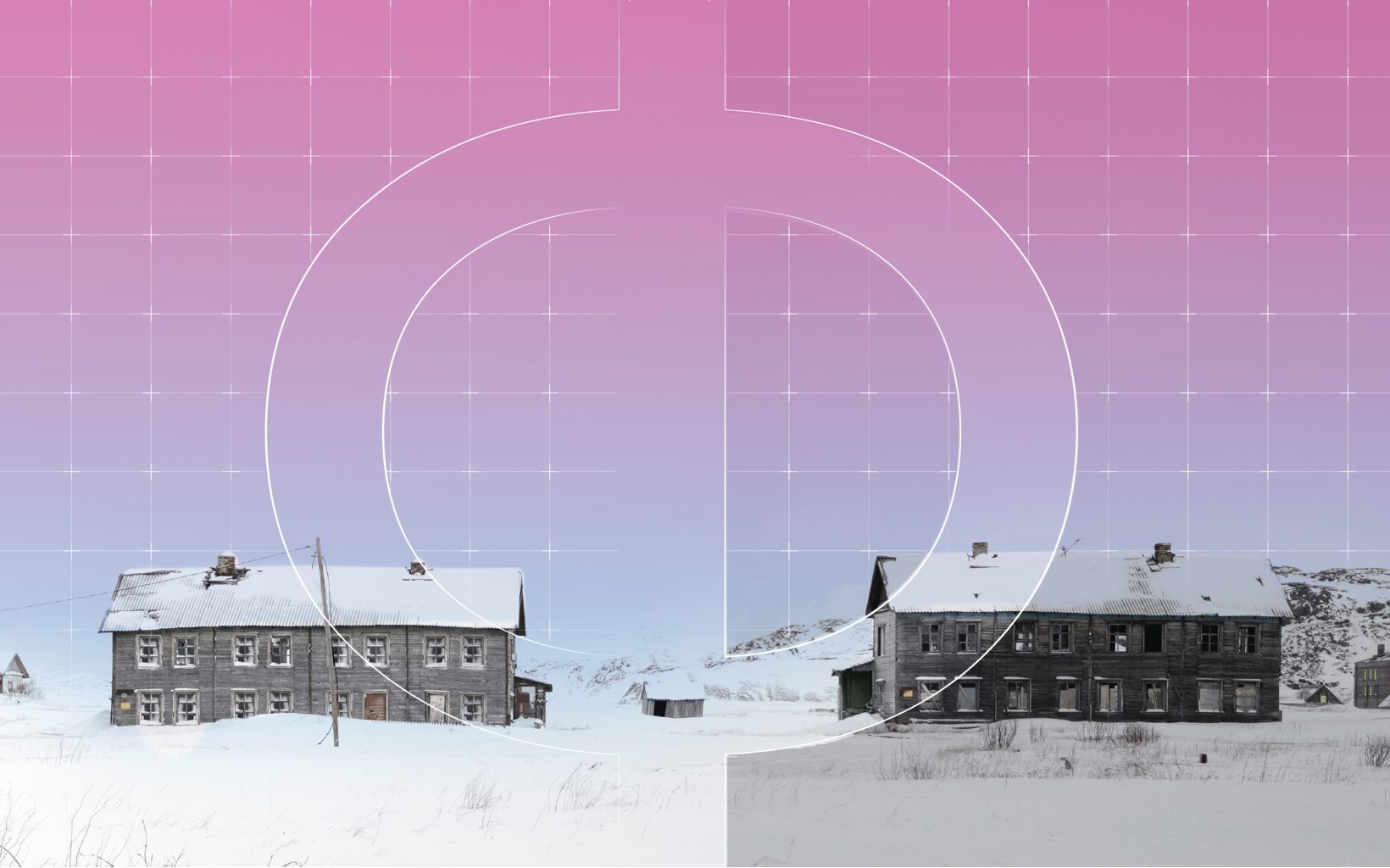
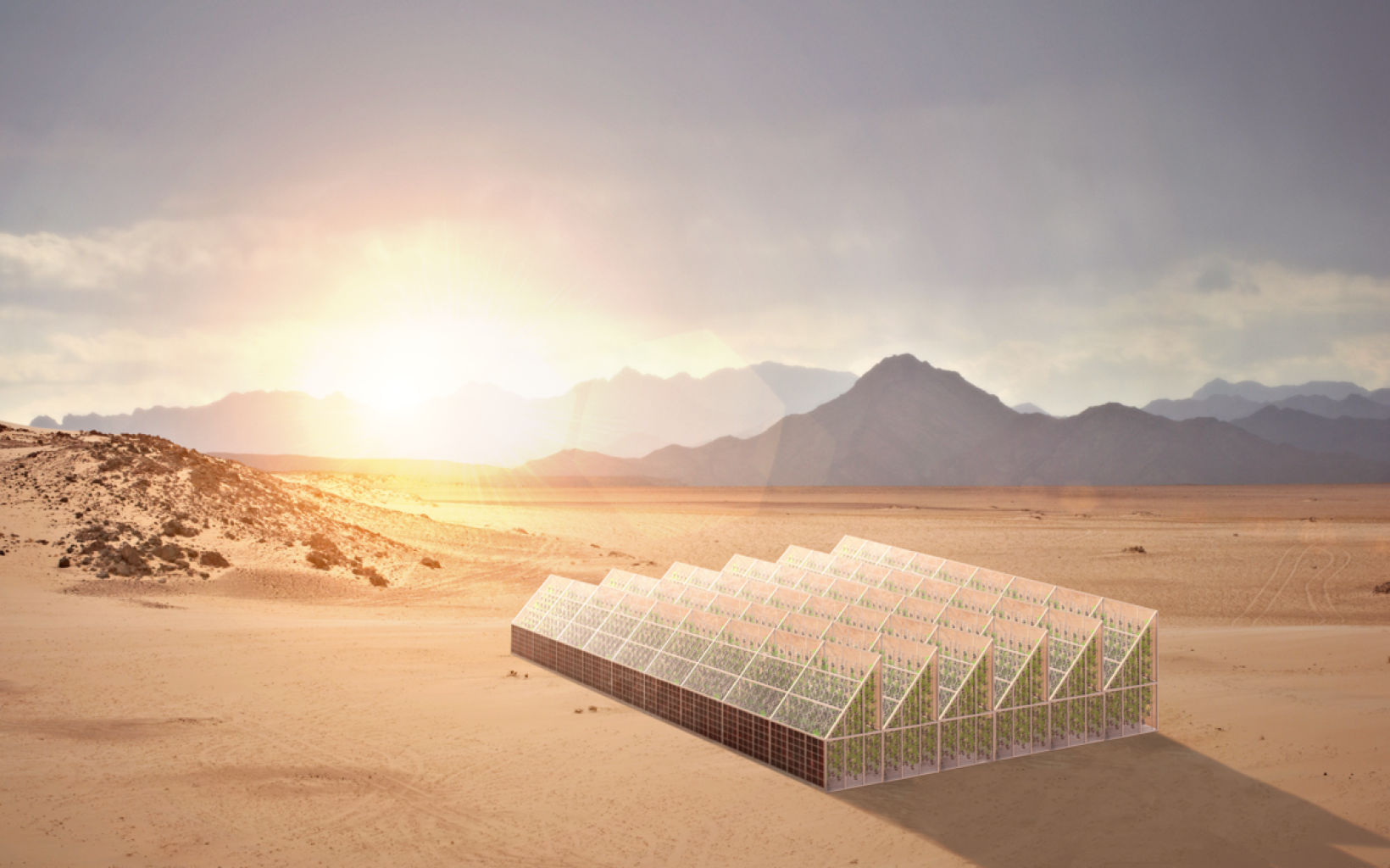
Share on social media.
Facebook
Twitter
LinkedIn
Mail